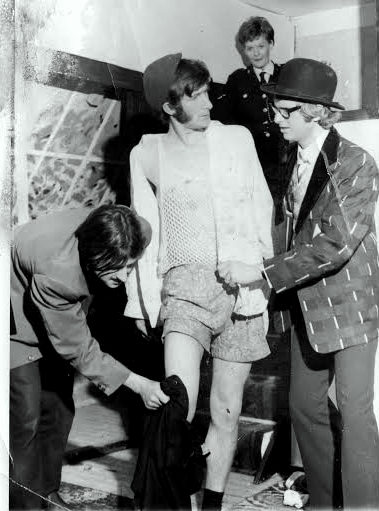There is a long tradition of drama at Old Tupton Methodist Church. In the 1930's several short plays were presented in
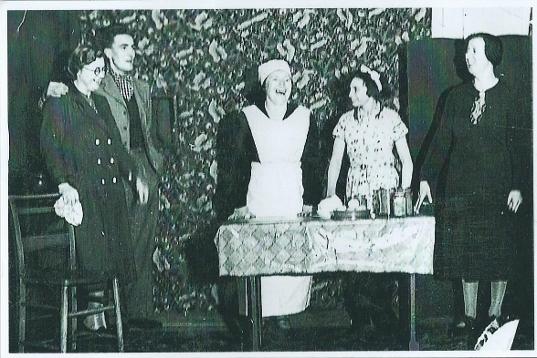
Old Tupton Social Association Players
During the early 1950s, a drama group was formed in the Association Hall, (now demolished), which stood next to the Chapel, called the
Old Tupton Social Association Players. Several Chapel members took part, Productions included 'Acacia Avenue', 'Lady be Careful',
'Love from a Stranger', 'When We Are Married' (1952), 'Painted Sparrows' (1953) and 'It Won't be a Stylish Marriage' (1953)
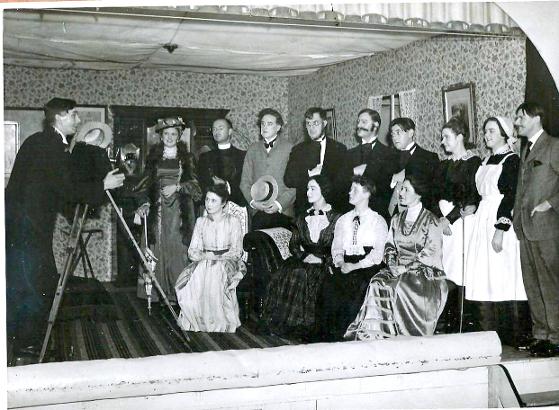
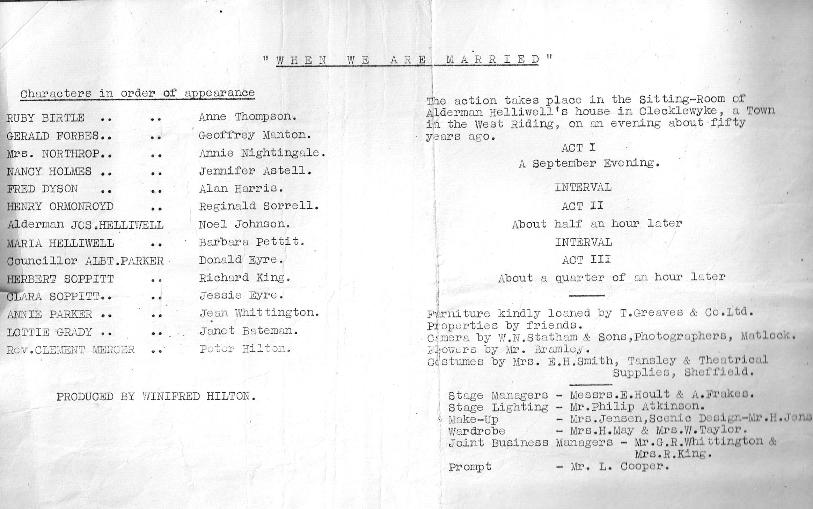
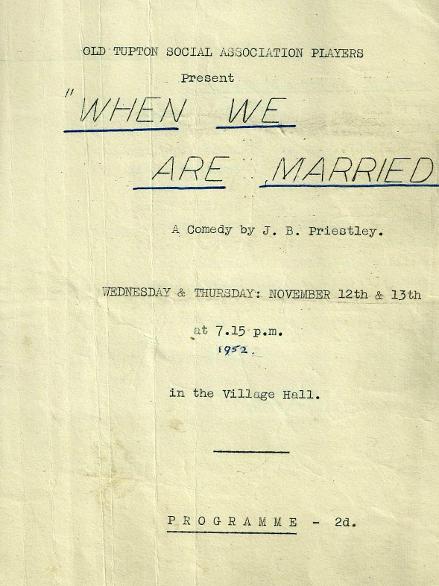
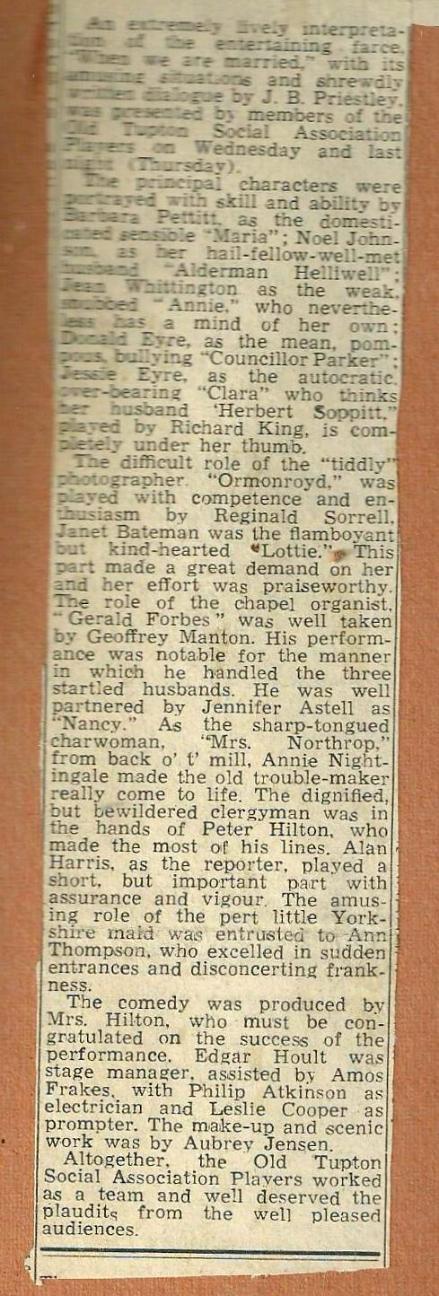
Old Tupton Methodist Players - 1950s
Mr Philip Atkinson, an adult member of Old Tupton Methodist Church, decided that the many older children at Chapel should at certain
times be 'segregated' from the younger ones to perform plays. This was intended to promote interest among the young people, keep
them together, build up the Church and to raise funds for the Church. The teenagers met in the vestry of the Chapel. Mr Atkinson and
Alan Harris (who was in his 20s) and others decided to 'put on plays'. The first one was 'Uncle John From Yorkshire' in January 1956,
performed in the Old Tupton Association Hall (still known affectionately as the "Nissan Hut") for the children's Christmas party. This was
followed by 'Three Half Crowns', 'Pearly Pearls' & 'Uncle Ben', (also performed at Marsden Street Methodist Church, Chesterfield),
'Wishing Well', 'The Younger End', and 'See How They Run' in February 1961, the final play of this period.
A journal entry records that "See How They Run" was 'our best effort so far'. Although lack of room on stage was a big disadvantage, it
played to two full houses, and comments ranged from "never laughed so much", to "the best yet".
The "Nissan Hut" was brought back from an RAF base somewhere in Lincolnshire by Reg Sorrell and others in the 1950s and erected
on a site behind where the existing Methodist Church now stands. The Scout hut garage now partly occupies the site.
Several of the Chapel Players present cast took part in these plays in the 1950s and early 1960s, when the group were named "Old
Tupton Methodist Dramatic Society"
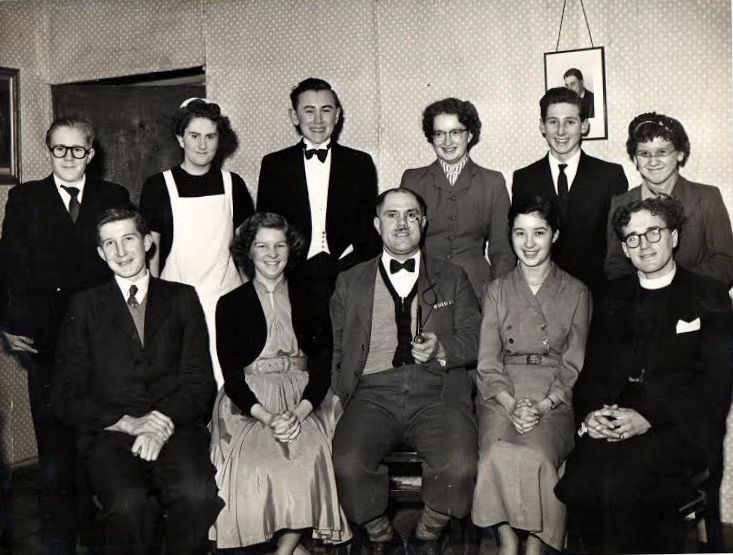
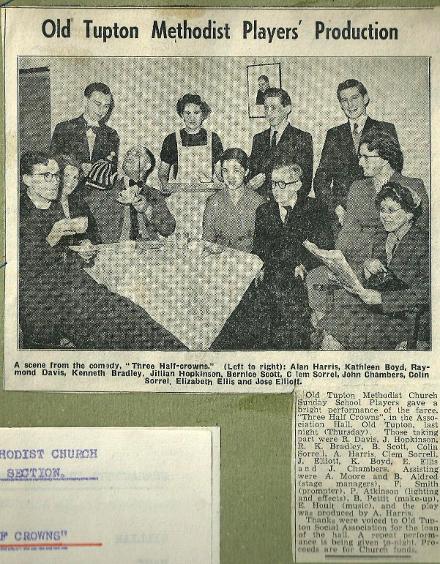
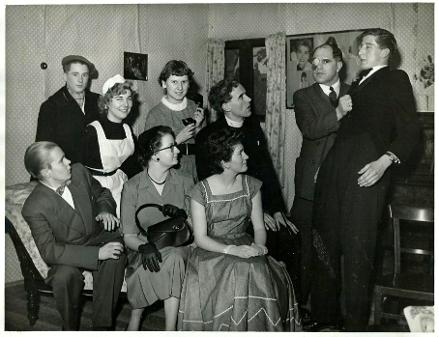
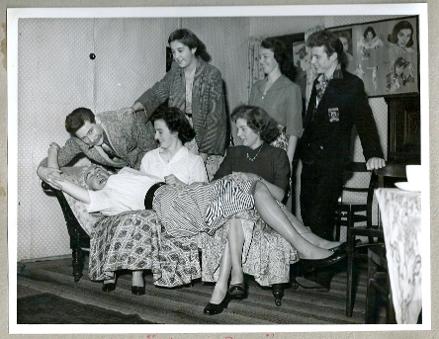
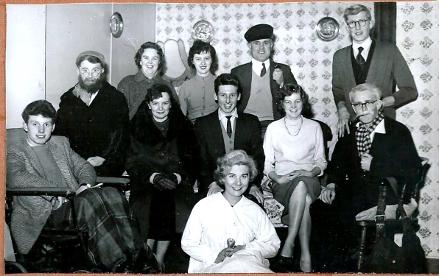
'Wishing Well', by E Eynon Evans, 1959
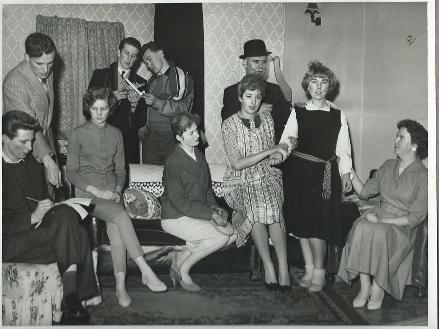
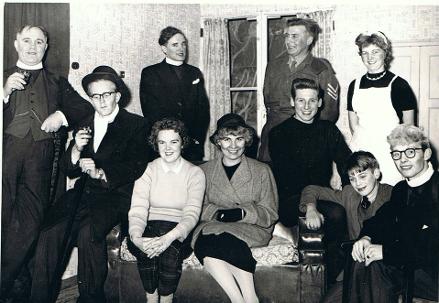
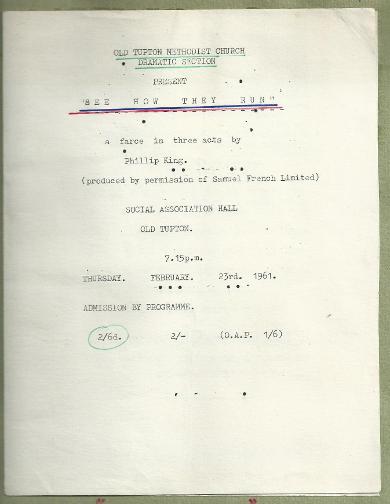
Tupton Venturers
Around 1970 "Tupton Venturers" was formed by existing people from Tupton and members who moved from Crispin Players at
Ashover. The late Mr Kenneth Bradley was one of these members who liaised with the committee of the Old Tupton Association Hall
and started performing plays in the "Nissan Hut" with "Dry Rot" in 1971. They later went to New Tupton Village Hall but remained
"Tupton Venturers", performing three or four plays a year. "Tupton Venturers" then moved to Rose Hill Methodist Church in
Chesterfield where they were simply known as "Venturers". As well as performing three or four plays a year, they took part in
competitions at the Civic, (now Pomegranate) Theatre in Chesterfield. They used to rehearse in the Recreation Room of Chesterfield
Corporation Bus Depot at Stonegravels. Eventually with many members moving away from the area and numbers dwindling, the
"Venturers" faded away and finally folded up.
